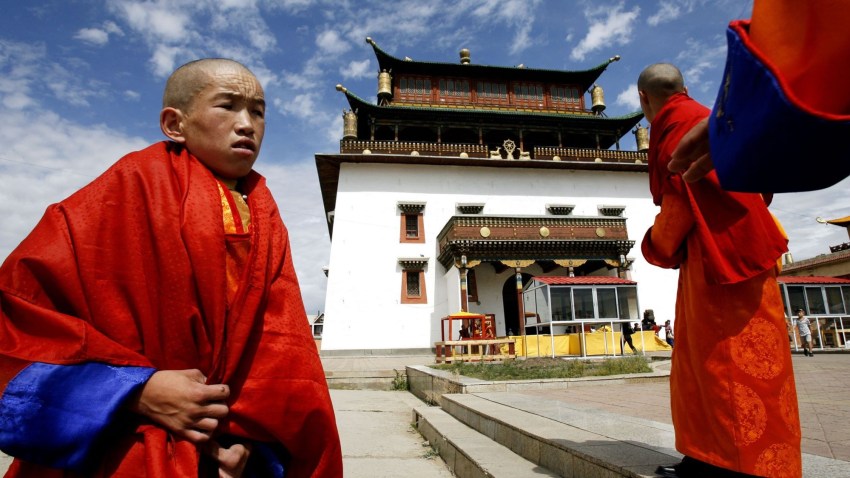Last summer, a fake news article went viral on a popular Mongolian website, under an alarming headline: “His Holiness 14th Dalai Lama has passed away.” The story was quickly denied by the Dalai Lama’s office-in-exile in Dharamsala, India, and by Gandantegchinlen, the main Buddhist monastery in Mongolia. Just a few weeks later, the Mongolian monastery found itself denying another rumor, this one falsely claiming that the third-highest authority in Tibetan Buddhism—the Jebtsundamba Khutuktu—was about to assume his throne.
Had either of these rumors been true, they would have brought the worst fears of many Mongolians to life. The Jebtsundamba Khutuktu is Mongolia’s spiritual leader, and ever since the death of his ninth reincarnation in 2012, Mongolia has walked a geopolitical tightrope with China on one side and Dharamsala on the other. When and how the Jebtsundamba Khutuktu reincarnates will give one side much more power over the future of Tibetan Buddhism, with significant geopolitical consequences.
Because the authority to identify the 10th Jebtsundamba Khutuktu currently rests with the Dalai Lama, the first rumor, if true, would have left the religion without a credible authority to oversee that reincarnation process. In his absence, powers friendly to China would likely have argued for the religion’s second-highest authority, the Panchen Erdeni, to identify the next Jebtsundamba Khutuktu.

